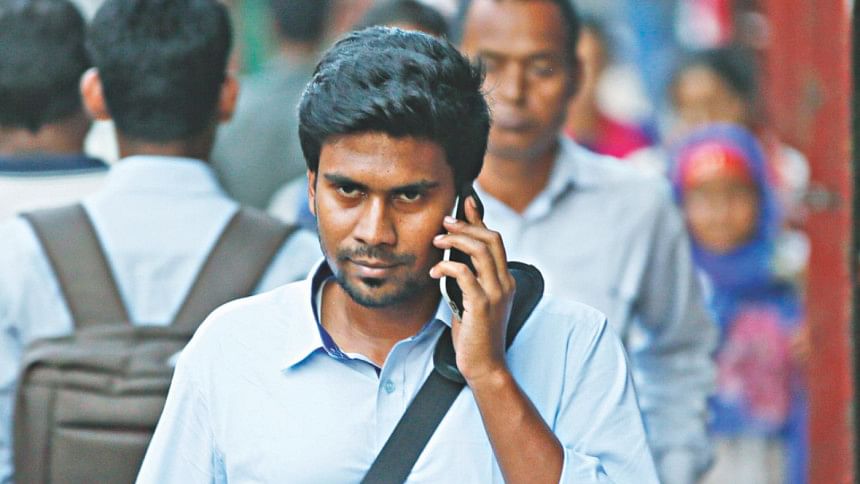Telcos reluctant to compensate for call drops

Mobile phone operators gave back only a third of the minutes payable to users because of massive call drops in the year to September, highlighting their reluctance to compensate customers, according to the telecom regulator.
A call drop is a situation in which calls are cut off before the speaking parties have finished conversation or one of them has hung up.
Bangladesh Telecommunication Regulatory Commission (BTRC) yesterday published a report, which showed that there were 222.15 crore call drops in total in the last 13 months and operators were supposed to give back 69.38 crore free minutes as compensation.
However, the top three operators only returned 22.06 crore minutes to their customers.
According to the regulation, if customers face more than two drops a day, they will receive compensation from the third drop and will get one minute back for every drop.
The telecom regulator introduced the compensation system in 2016 amid huge call drops in different parts of the country across all operators.
Mobile phone users are facing severe call drops and the overall service quality has deteriorated.
Commerce Minister Tofail Ahmed raised the issue in Parliament on Sunday and expressed dissatisfaction about the call drop related to market leader Grameenphone.
The telecom regulator's report, however, said the call drop situation has improved in September compared to the same month a year ago.
In September last year, call drop totaled 21.21 crore times and it came down to 18.02 crore times in September this year.
Robi's call drops increased to some extent compared to what was last year, while Grameenphone, Banglalink and Teletalk have all improved the situation.
The BTRC report is based on the numbers provided by the operators and it has no mechanism to verify the information independently.
Yesterday, the regulator wrote to the operators asking them to submit a report about the customers' complaints related to call drops within five working days.
Users' complaints about the call drops have increased consistently and the issue has been discussed in parliament, read a BTRC letter signed by Golam Razzaque, director for engineering and operations division at the BTRC.
Previously, Telecom Minister Mustafa Jabbar expressed disappointment about Grameenphone's service quality and call drop issue. However, Grameen-phone, in a statement, said call drop was a phenomenon in mobile service.
"Our call drop rate is lower than the threshold provided by the BTRC and maintains the global standard and we believe it is much lower than the competitors." "Considering the inconvenience to the customers, we are compensating for the call drops if related to GP network."
The market leader's call drop totaled 6.92 crore times in September last year and it came down to 5.68 crore times.

 For all latest news, follow The Daily Star's Google News channel.
For all latest news, follow The Daily Star's Google News channel. 








Comments